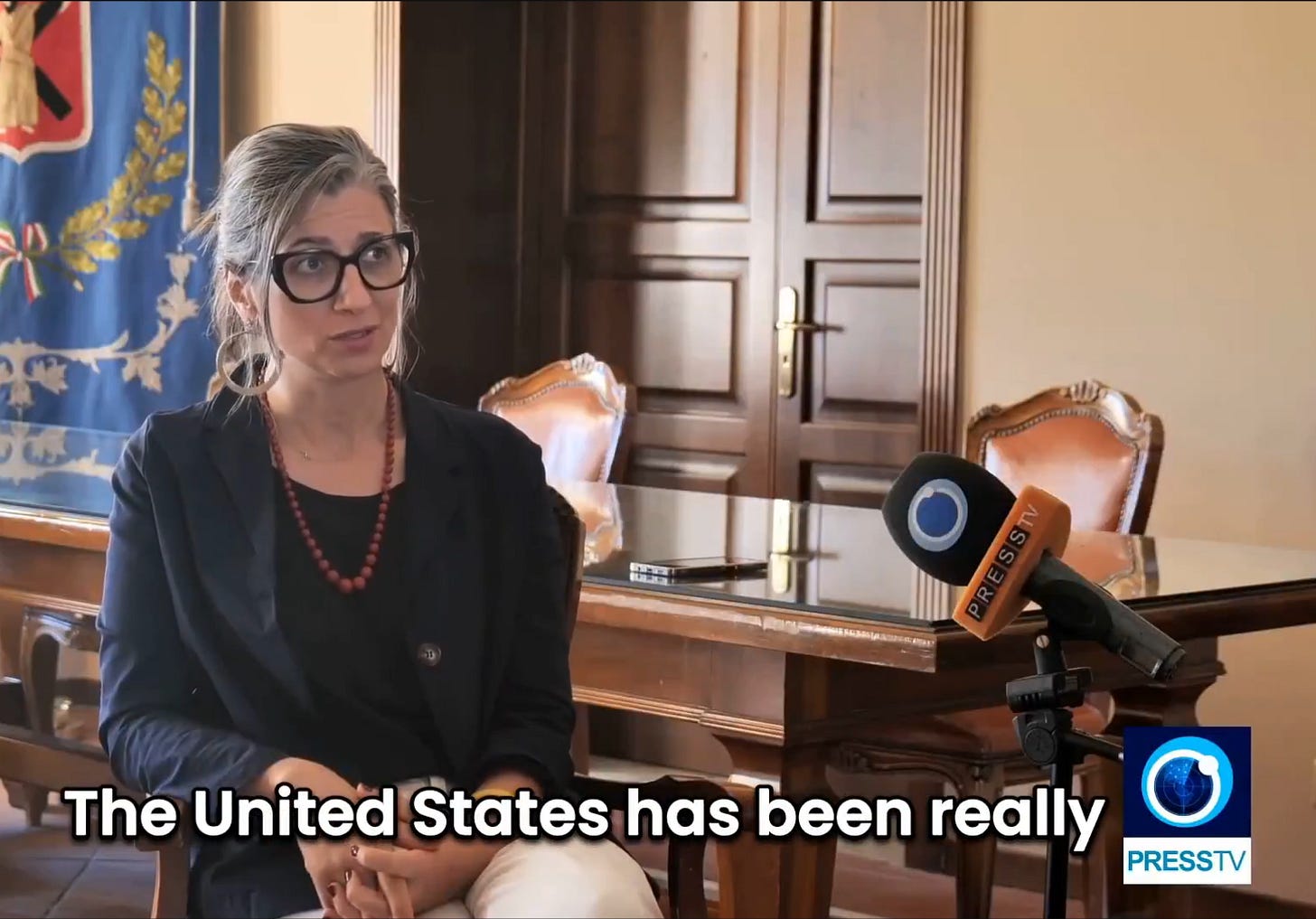Francesca Albanese Decries U.S. Sanctions, Compares Her Treatment to Bin Laden
The UN rapporteur, repeatedly condemned by Western governments for antisemitism, complains she can no longer use credit cards or rent cars following historic U.S. designation.

Francesca Albanese, the UN Special Rapporteur for Palestinian Territories, has spoken out about the severe consequences she faces following the United States’ unprecedented decision to sanction her—making her the first UN official to receive such designation.
In a series of recent interviews and statements compiled by UN Watch, Albanese detailed how the sanctions have effectively paralyzed her daily life. “I am treated almost like Osama bin Laden, and I find it horrible, horrible!” she stated, describing the wide-ranging restrictions now imposed on her activities.
The sanctions have stripped Albanese of basic financial services. She can no longer use credit cards, open bank accounts, or even rent a car. “No bank can open a current account for me without the risk of incurring secondary sanctions imposed by American law,” she explained, adding that these restrictions will last “in perpetuity.”
Albanese’s complaints come despite her tenure being marked by repeated condemnation from Western governments and watchdog groups for antisemitism. Germany, the United Kingdom, and other Western nations have formally condemned her statements, with multiple governments and Jewish organizations accusing her of promoting antisemitic tropes and demonstrating systematic bias against Israel.
Beyond the personal inconvenience, Albanese highlighted what she calls a “chilling effect” on those around her. According to U.S. sanctions law, anyone who engages with a sanctioned individual risks arrest and substantial fines.
UN Watch, which compiled the clips, describes Albanese as “the UN’s de facto spokesperson for Hamas.” Critics point to her repeated characterization of Israeli military actions as genocide, her dismissal of Hamas’ October 7th attacks, refusal to describe Hamas as a terrorist organization, and statements that watchdog organizations have identified as echoing classical antisemitic conspiracy theories. Several countries have refused to engage with her officially, with ongoing calls for her removal from the UN position.
The U.S. sanctions signals Washington’s willingness to use financial tools against international officials it deems to be promoting hatred and bias under the cover of human rights advocacy. The move has been welcomed by organizations combating antisemitism, who argue that UN platforms should not provide legitimacy to officials who traffic in discriminatory rhetoric.



Good. Now can Israel disarm Hamas & deal with the tunnels before Hamas regroups & pull another 10/7?
Well merited.